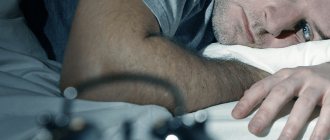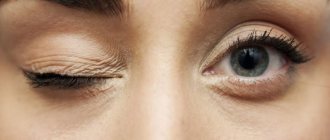Sleep studies show that a teenager needs eight to 10 hours of sleep each night. This is more than a child or adult needs. However, most teenagers sleep only about 6.5-7.5 hours a night, and some even less.
Regular lack of sleep leads to chronic sleep deprivation. This can have a significant impact on a teenager's life, affecting their mental well-being and increasing the risk of depression, anxiety and low self-esteem. It can also affect school performance.
Causes of teenage sleep deprivation
Some of the reasons why many teenagers don't get enough sleep regularly:
- Puberty hormones set teenagers' clocks forward by about one or two hours, causing them to fall asleep 1-2 hours later.
- Use of screen devices – Smartphones and other devices used before bed reduce sleep time. According to the study, teens who turn off their smartphones an hour before bed get an extra 21 minutes of sleep per night (that's one hour and 45 minutes during the school week).
- Hectic after-school schedules—homework, sports, and social obligations—can reduce a teen's sleep time.
- Entertaining activities – the lure of stimulating entertainment such as television, the Internet and computer games makes a teenager get out of bed faster.
- Exposure to light - light tells the brain not to sleep. In the evening, light from televisions, cell phones and computers can prevent adequate production of melatonin, the brain chemical (neurotransmitter) responsible for sleep.
- Social Habits – In Western culture, staying active is valued more than sleeping.
- Sleep disorders such as restless leg syndrome or apnea can affect how much sleep a teen gets.
Physiotherapy
Elimination of constant insomnia is possible with the help of physiotherapy: massages, baths, hydrotherapy. These techniques are prescribed as part of complex therapy. At the same time, the teenager is required to drink herbal teas or medications.
Particularly successful physiotherapy procedures:
- Progressive relaxation. With this technique, full tension of all muscles is stimulated, and then they are relaxed.
- Biofeedback therapy. The therapy is carried out using a unique device. It is based on teaching the child the ability to cope with his own emotions and completely relax before bed.
- Hydrotherapy. Soothing baths help calm the nerves and all muscles. The course of treatment provides the teenager with adequate sleep.
It is important to know! Physiotherapy is considered effective for teenagers who suffer from insomnia due to green nervous system or cardiovascular diseases. Using the mentioned techniques, temper, aggression, and apathy are eliminated.
Consequences of teenage sleep deprivation
The developing teenage brain requires eight to 10 hours of sleep each night. The effects of chronic (ongoing) sleep deprivation may include:
- difficulty concentrating;
- problems at school;
- reduced attention span;
- memory impairment;
- poor decision making;
- lack of enthusiasm;
- moodiness and aggression;
- depression;
- slow physical reflexes;
- clumsiness that can lead to physical injury;
- decreased athletic performance;
- decline in academic performance;
- illness;
- absenteeism.
How many hours should an 18 year old teenager sleep?
At this age, young people already live mainly independently, establishing their own sleep and wakefulness patterns. For this reason, it is sometimes difficult for them to live by the rules. At the age of 18, teenagers do not think about sleep; other questions are spinning in their heads. At night they play, communicate on social networks, and then sleep until lunch. If they come home from school, then until the evening.
Daytime and night sleep in boys and girls 18 years old
Students at this age should go to bed no earlier than 10 pm, but no later than midnight, and wake up at 6-7 am. Unfortunately, not everyone adheres to this schedule. At 22-23 hours the highest level of drowsiness occurs. The earlier a teenager gets up in the morning, the more cheerful he will be. To strengthen the body at 18 years old, you need to do exercises in the morning. Boys and girls of this age do not sleep during the day.
Duration of daytime and night sleep
Teenagers 18 years of age should sleep for 7-8 hours. How long should he sleep? The teenager determines this for himself. Some people divide their rest into night and daytime: for example, they sleep 2 hours during the daytime and 6 hours at night. Doctors do not recommend sleeping during the day at 18 years of age.
Causes of poor or lack of sleep in teenagers
Boys and girls sleep poorly or suffer from insomnia for many reasons. For example:
- disturbance of sleep and wakefulness;
- physical or emotional stress;
- unventilated room before bedtime;
- incorrectly selected mattress or pillow;
- asymptomatic disease;
- drinking alcoholic beverages;
- use of caffeine-containing drugs;
- playing on the phone (laptop) before bed, watching TV;
- stress.
It is necessary to pay attention to these factors.
Preventing sleep deprivation in teenagers - tips for parents
Try not to argue with your teen about sleep. Instead, discuss the problem with him. Offers include:
- Let your child sleep in on weekends.
- Encourage early sleep every Sunday.
- Together, decide on appropriate time frames for any stimulating activities, such as homework or computer time. Encourage quiet activities during the evening, such as reading.
- Avoid early morning meetings, classes, or practices for your child if possible.
- Help your teen better schedule their extracurricular activities to free up time for rest and sleep.
- Evaluate your teen's weekly schedule together and see if they are overwhelmed. Help your child trim the plan if necessary.
- Encourage your teen to take a nap after school to help recharge if they have time.
- Work together to normalize your teen's internal clock. You may want to consult your doctor first.
Diagnosis of the pathological condition
First of all, insomnia in children is noticed by parents. They notice that the baby is tired and inattentive during the day. He may even complain of headaches. What to do when you suspect insomnia in a child? In this case, you should seek help from a pediatrician, somnologist, or psychotherapist. After examining and talking with the little patient, specialists refer him for further diagnostics.
Polysomnography is considered the most informative diagnostic method. A polysomnograph detects moments of changes in brain activity at moments when the subject is sleeping poorly or, for example, having nightmares. Thanks to polysomnography, doctors collect information about all functions occurring in the body overnight: the work of the heart, respiratory system, blood pressure.
The following research methods may also be needed:
- CT.
- MRI.
- EEG.
If a 10-year-old child has paroxysmal insomnia, the patient is referred for the following blood tests:
- Biochemical analysis.
- General analysis.
Best Sleep Tips for Teens
The typical teenage brain wants to stay up late and sleep late the next morning, which is usually difficult to control. You may be able to adjust your child's biological clock, but it takes time. Offers include:
- Relax before bed; for example, you can take a bath and drink a hot milk drink before bed, or use meditation. Yoga can also help.
- Avoid computers, TV or smartphones, loud music, homework, or any other activity that keeps your brain active an hour before bed.
- Avoid stimulants in the evening, such as caffeine and energy drinks.
- Keep the bedroom dark at night. The brain's sleep-wake cycle is largely determined by the light it receives through the eyes. Try to avoid watching TV or using smartphones right before bed. Expose your eyes to plenty of light in the morning to wake up your brain.
- Do the same bedtime routine every night for at least four weeks so that your brain associates the routine with falling asleep.
- Start falling asleep a little earlier than usual (for example, 10 minutes). Do this for one week. Add an additional 10 minutes each week until you reach your desired sleep time.
- Get active during the day.
- Create a comfortable sleeping environment.
- Set a regular wake-up time.
- Avoid staying up late on weekends.
Remember that even 30 minutes of extra sleep every night on a regular basis makes a big difference.
Features of adolescence
Let's look at the sleep phases and disorders that are typical for teenagers:
- The first stage of sleep, known as the light stage of sleep, is one of the shortest, lasting on average five to ten minutes. During this stage, the mind and body begin to “slow down,” causing us to feel sleepy and relaxed. Light sleep is when it's easiest to wake up, and so naps should not last more than twenty minutes to prevent you from falling into deep sleep. Napping too long means you may wake up during deep sleep, leading to sleep inertia where you feel groggy when you wake up. If you want to take a long nap, you need to sleep 90 minutes or more to complete the entire cycle.
- During the second stage of sleep (still called light sleep), eye movements, brain waves, and muscle activity begin to decrease and prepare the mind for deep sleep. During this stage, the brain produces sudden peaks in brain waves known as sleep spindles due to their precise appearance on EEG charts. These bursts of brain activity are thought to play a role in long-term memory consolidation and sensory processing, making this stage important as we age. It is believed that it is during this stage that most of our memories are formed.
- During the third and fourth stages of sleep, slow-wave sleep, it becomes much more difficult for us to wake up. During this stage, the muscles of the body become completely relaxed or limp and the breathing rate, blood pressure and body temperature decrease significantly during these stages. The body produces growth hormones, regulates immune system function, and develops and repairs muscle tissue during these stages, making it critical to physical health and recovery.
- After these stages, the body enters the most discussed phase of sleep: REM sleep. During this stage, we experience both dreams and many neurological and physiological reactions that are similar to waking. During REM sleep, your heart rate and blood pressure increase, and your breathing may become irregular, rapid, and shallow.
The REM stage of sleep is somewhat mysterious, and its full function is still being studied by neuroscientists. However, REM sleep is thought to play a vital role in the brain's ability to learn and remember because it is during REM sleep that the brain processes, consolidates, and stores information in long-term memory.
We tend to spend more time in the deeper stages of sleep in earlier sleep cycles, while spending much more time in REM during sleep cycles that occur later in the night (or day, depending on your sleep schedule). Thus, it is important to set an alarm or wake up at the appropriate stage of your sleep cycle every morning.
However, as we age, the timing and length of our sleep cycles change. Older people tend to experience much longer sleep cycles with less REM sleep, as opposed to children who experience shorter cycles with more REM sleep.
Causes of disorders in adolescents
Some substances can disrupt your sleep cycles. For example, drinking caffeine too close to bedtime can not only make it more difficult for you to sleep, but also negatively impact your deep sleep in the first half of the night.
Alcohol, on the other hand, tends to disrupt the second half of your night's sleep. If you drink before bed, around the middle of the night, your body will begin to process the alcohol and it will act as a stimulant.
Health professionals around the world are beginning to understand how important sleep is to our overall physical and mental well-being, as so-called “epidemics” of sleep deprivation are on the rise. Learning about the body's sleep stages can help some people better understand their circadian rhythms and make appropriate changes to their sleep habits to ensure they have the optimal number of sleep cycles each night.
In adolescents, some stages of sleep may be interrupted by hormonal fluctuations, especially those that increase cortisol levels. Because of this hormone, a person wakes up in the morning because he feels an increased concentration of stress.
What to do if the advice doesn’t help?
If lack of sleep is still a problem despite your best efforts, we offer the following suggestions:
- Assess your sleep hygiene. For example, factors that can affect the quality of your sleep include a noisy bedroom, a lumpy mattress, or a habit of lying awake.
- Consider learning a relaxation technique to help you get ready for bed.
- Avoid eating or drinking caffeinated foods after lunch.
- Avoid recreational use of alcohol, tobacco, as they can lead to sleep disturbances and poor sleep quality.
- Contact your healthcare provider if self-help techniques do not improve your sleep at night.
Read also:
- Chronic sleepiness or how to overcome the constant desire to sleep
- How to sleep to get enough sleep
Sleep and feeling of passivity
Additionally, people with insomnia may sometimes experience sleep as a fantasy threat of death. “Falling asleep is a critical moment for some people: a person, being in the dark, alone, far from the outside world, can feel the fear of death,” helplessness, infantile stress described by Freud - the state of an infant who is completely dependent on others. It occurs as a reaction to the physical changes of adolescence. The changes that occur to a teenager as he grows up are beyond his control. They create a feeling of passivity
, reactivate the feeling of infantile helplessness, which, according to the teenager, is already a thing of the past. The teenager must work through this feeling of passivity in order to transform it.
Child psychoanalyst Winicotte emphasizes that it is very important for a teenager to feel “real”, alive, so he may unconsciously experience fear of sleep and perceive sleep as a state close to helplessness or death. By unconsciously avoiding or resisting sleep, the teenager refuses to “die” symbolically - he must resist the feeling of “nothingness” and convince himself that he is alive and in a state of wakefulness.









